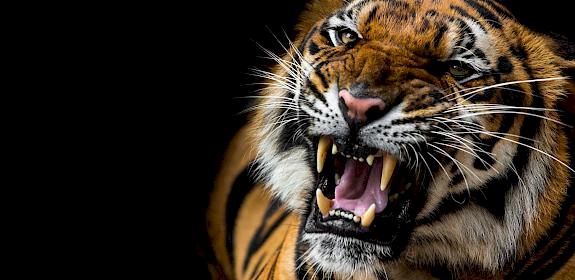Bangkok market hub of illegal trade in endangered tortoises from around the world
Cambridge, UK, 4th December 2014—A new study shows that Bangkok’s Chatuchak market—one of Southeast Asia’s largest wild pet trading centres—has been home to a sustained and illegal trade in highly threatened tortoises and freshwater turtles with consequences far beyond its borders.

Data from a dozen surveys in this market documented 2,667 individual tortoises and turtles in trade between November 2004 and December 2013.
Close to half were globally threatened species, many banned from international trade and almost all were species found only outside Thailand, according to the report: Analysis of a decade of trade of tortoises and freshwater turtles in Bangkok, Thailand.
Most individuals originated from Africa (871 individuals), the Indian sub-continent through to Indochina (846), Indian Ocean islands (374) and the Americas (372) with smaller numbers from Australia, New Guinea and Europe.
In terms of species, the most common were the Indian Star Tortoise Geochelone elegans (653 individuals), African Spurred Tortoise Centrochelys sulcata (536) and Radiated Tortoise Astrochelys radiata (320). African Spurred Tortoise is listed as Vulnerable on the IUCN Red List, and Radiated Tortoise is listed as Critically Endangered.
The study, published in Biodiversity and Conservation, said Thailand’s primary wildlife legislation, the Wild Animal Reservation and Protection Act, protects only native species of tortoises and freshwater turtles, creating a loophole that facilitates the ongoing illegal trade of non-native species.
The import and export of species such as the Indian Star Tortoise and African Spurred Tortoise is prohibited or regulated under the Convention on International Trade in Endangered Species of Wild Fauna and Flora (CITES), and this enables the seizure of non-native tortoises and freshwater turtles at Thailand’s entry and exit points.
However the sale of non-native species in the domestic market is not covered under Thailand’s Wild Animal Reservation and Protection Act. Therefore, once inside the country, it is up to the enforcement agencies to prove that the animals in question were illegally exported or imported, thus deterring them from taking effective action.
“This loophole is clearly what illegal wildlife dealers find so attractive about Thailand. It is the reason why Thailand is a major hub for the global illegal wildlife trade,” said the paper’s co-author Dr Chris R. Shepherd, Regional Director of TRAFFIC in Southeast Asia.
“Thailand’s current law doesn’t allow effective implementation and enforcement of CITES, a Convention to which Thailand is a Party and thus has international obligations to implement fully.”
Thailand must recognise the global impact of weaknesses in its domestic legislation, rate of detection, seizure, follow-up and prosecution of smuggling cases, urge the paper’s authors, Dr Shepherd and Dr Vincent Nijman, Professor of Anthropology at Oxford Brookes University.
They also called on authorities to take the necessary measures to combat the illegal components of the trade especially through a revision of Thailand’s wildlife laws.
Notes:
Analysis of a decade of trade of tortoises and freshwater turtles in Bangkok, Thailand, can be viewed here: http://link.springer.com/article/10.1007/s10531-014-0809-0#page-1




